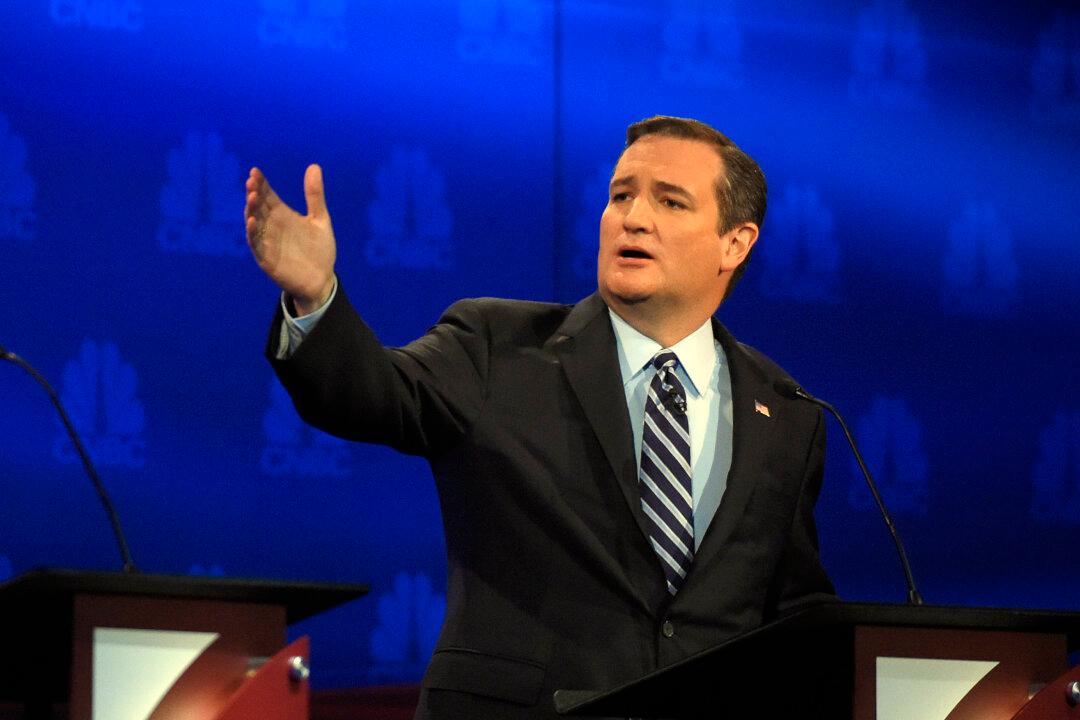MADISON, Wis.—When Republican presidential hopeful Ted Cruz first ran for U.S. Senate in Texas, the only thing lower than his name recognition was the expectation that he'd win.
Then the state solicitor general, Cruz amassed a coalition anchored by tea party conservatives and evangelicals on his way to defeating a sitting lieutenant governor who entered the primary with the financial and organizational muscle of the GOP establishment.
Now Cruz is trying to take the model nationwide, even as some of his White House rivals, especially Florida Sen. Marco Rubio, compete for the same voters in a scrambled GOP race.
The son of a Southern Baptist preacher, Cruz will continue his efforts this week with a two-day meeting at a remote Texas ranch that began Monday and was expected to bring together about 300 Christian leaders and key financial backers for a fundraiser.
Some are already supporting him, while others are undecided, Cruz said.
The Cruz campaign combines a traditional get-out-the-vote operation — making phone calls and knocking on doors — with modern data analytics to identify and mobilize supporters, beginning with Iowa on Feb. 1. He’s pairing that with state-by-state teams filled with grassroots tea party leaders, local elected officials and state lawmakers who hail from the most conservative corners of the GOP.
“Our objective has been to follow a biblical principle: to build on a foundation of stone, not of sand,” Cruz told reporters in North Little Rock, Arkansas, last week.
Cruz boasts of having 160,000 volunteers and collecting more than 600,000 contributions nationwide.
JoAnn Fleming, Cruz’s tea party chairwoman for Texas and a longtime conservative organizer, called it “an aggressive hand-to-hand combat situation.”
“It’s the kind of campaign that takes an enormous amount of time and personal dedication,” she said. “Frankly, you can’t buy that.”
Becky Gerritson, a Cruz supporter and tea party leader in Alabama, one of several Southern states holding March 1 primaries, said Cruz’s effort appeals to frustrated conservatives who don’t just want an evangelical voice or a critic of politics-as-usual, but a “proven fighter” who demonstrates that “he shares all of our values.”
Cruz, she said, “understands the conservative grassroots, what we want.”
The senator hopes the network he’s building in that community ultimately will separate him in a primary battle that could go deep into the spring, well beyond the early voting states of Iowa, New Hampshire, South Carolina and Nevada.
Cruz recently spent time at his South Carolina headquarters making phone calls alongside volunteers before the South’s first primary. “You guys are spreading hope one phone call at a time,” he told the team.
The gathering of preachers in Texas this week, which is to conclude with a public rally on Tuesday featuring music by Christian rock band Newsboys, is the latest sign that conservative evangelical leaders may be coalescing behind Cruz. He has already announced the backing of Iowa evangelical leader Bob Vander Plaats and Focus on the Family founder James Dobson.





